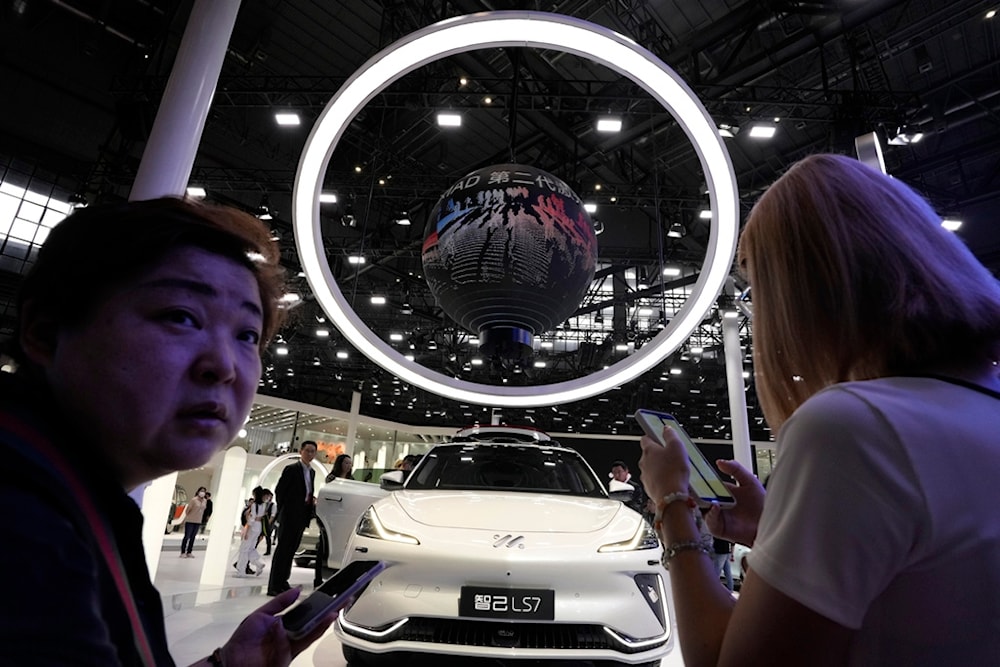China to become top global car exporter in 2023, surpassing Japan
From January to November, China exported 4.41 million automobiles, reflecting a 58% increase from the same period in 2022.
-

Attendees visit the booth of Chinese car brand iM during the Shanghai 2023 show in Shanghai, Wednesday, April 19, 2023. (AP)
Preliminary data from the China Association of Automobile Manufacturers (CAAM) forecasted that China is set to become the leading global car exporter this year for the first time, a report by Nikkei Asia revealed.
Data indicates that from January to November, the country exported 4.41 million automobiles, marking a 58% increase from the same period in 2022.
China has now surpassed the previous export leader, Japan, whose full-year total is projected to be around 4.3 million. This marks the first time Japan has been overtaken since 2016 when Germany took the lead.
"China aims to become an automotive powerhouse, and sees the global shift to EVs (electric vehicles) as a way to achieve that goal," Nikkei wrote.
Chery, Great Wall main exporters
The report highlighted that the increase in Chinese exports to Russia coincided with the departure of Japanese and Western automakers from the market due to new sanctions.
According to CAAM statistics, China exported 730,000 vehicles to Russia from January to October, marking a sevenfold increase from the previous year.
Chery Automobile and Great Wall Motor were reportedly the main exporters, focusing on gasoline-powered cars, particularly midsize and large SUVs.
Read more: China interested in joint projects in Russia's Kuril Islands
Mexico emerged as the second-largest export market as data indicated a remarkable 71% surge in the volume of Chinese cars, reaching 330,000 units.
The report noted that Chinese automakers aim to establish a customer base in Mexico, viewing it as a strategic step toward potential expansion into the US and Canadian markets.
The statistics further revealed a 77% year-over-year increase in exports of Chinese electric vehicles (EVs) and other new energy vehicles, totaling 1.43 million units from January to October.
According to CAAM, these vehicles constituted 34% of total auto exports during that period. The majority of China's EV exports were directed to Europe and Southeast Asia, as reported by the newspaper.
Europe lagging in raw materials for EV batteries
Earlier this month, an analysis issued by Transport & Environment (T&E), a Brussels-based campaign group, revealed that European carmakers have not reached a sixth of the key raw materials required by 2030 to manufacture electric vehicle batteries - which amount to contracts for 16% of the lithium, cobalt, and nickel required for sale targets.
The world's two largest electric carmakers, US' Tesla and China’s BYD were majorly ahead of their European rivals in access to key raw materials used in devices such as phones.
The analysis adds that car manufacturers maintained agreements that cover only 14% of lithium, 17% of nickel, and 10% of cobalt that would allow them to reach their sales target by 2030.
Read more: US to face mineral shortages amid boost in electric car production

 3 Min Read
3 Min Read








